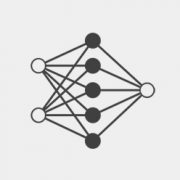J P Tripathi has completed his Masters in Agriculture with specialisation in Plant Breeding and Genetics from Gujarat Agriculture University, just after completing his masters he joined National Innovation Foundation and the excitement of working with Not for Profits, kicked in and since then he has worked with various National level NGOs and CSR Foundations at various leadership capacities. He is a competent professional with over 22 years of experience of working in agriculture development, animal husbandry, watersheds, value chain management in select areas, livelihoods and skill development. He was the lead in introducing watershed implementation in VIKSAT, a traditional training and capacity building organisation. Under his leadership, the agriculture program of Ambuja Cement Foundation grew many folds in a span of 4 years – farmer outreach increased from 50K to 260K. He is an effective communicator, innovator with exceptional relationship management skills, has hands-on experience in networking with project stakeholders and transferring knowledge and skills.





